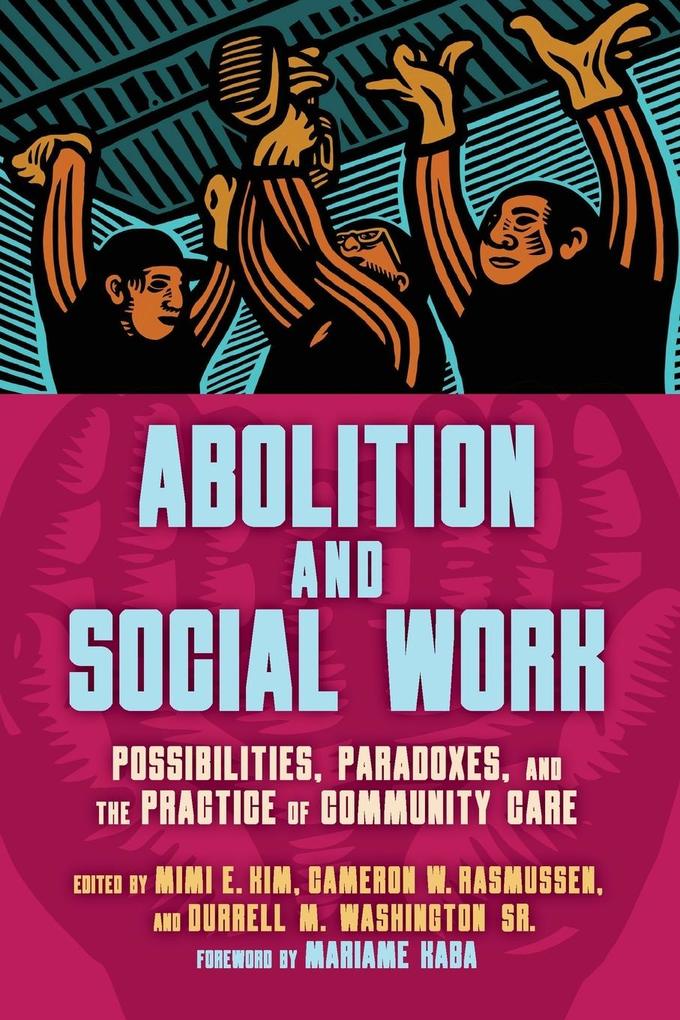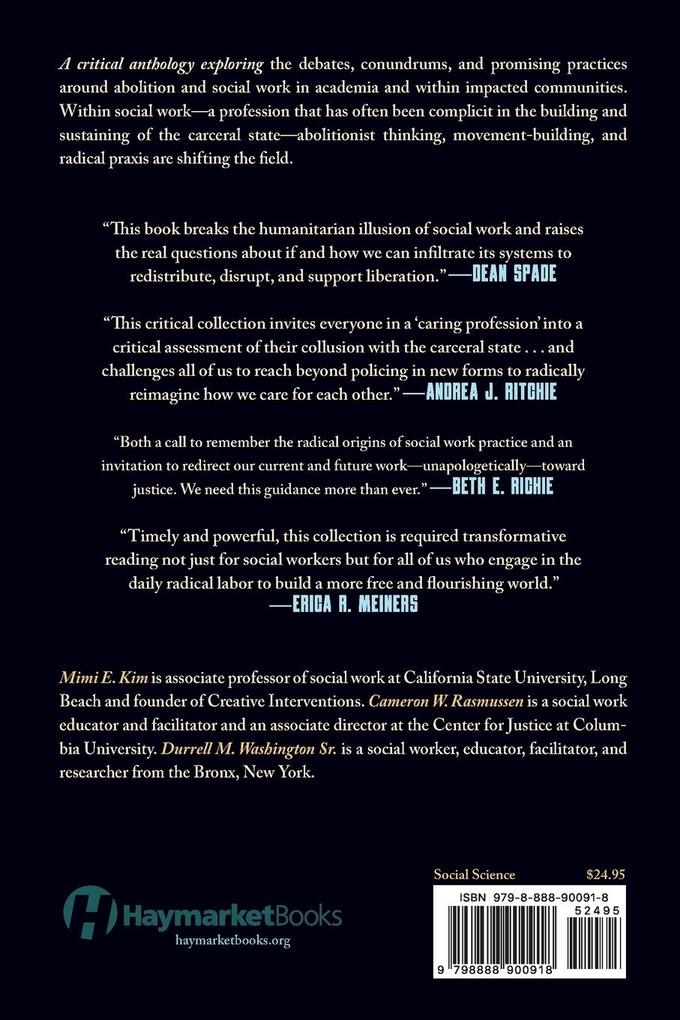Bücher versandkostenfrei*100 Tage RückgaberechtAbholung in der Wunschfiliale
Ihr Gutschein zum Schulstart: 15% Rabatt11 auf Kalender & Schreibwaren mit dem Code DATUM15
Jetzt einlösen
mehr erfahren
Zustellung: Mo, 22.09. - Fr, 26.09.
Versand in 2 Wochen
VersandkostenfreiBestellen & in Filiale abholen:
"A critical anthology exploring the debates, conundrums, and promising practices around abolition and social work in academia and within impacted communities. Within social work--a profession that has been intimately tied to and often complicit in the building and sustaining of the carceral state--abolitionist thinking, movement-building, and radical praxis are shifting the field. Critical scholarship and organizing have helped to name and examine the realities of carceral social work as a form of "soft policing." For radical social work, abolition moves beyond critique to the politics of possibility." --
Inhaltsverzeichnis
Foreword
Introduction (Mimi E. Kim, Cameron Rasmussen, and Durrell M. Washington)
Society for Social Work and Research Keynote (Angela Y. Davis)
Section 1: Possibilities
Introduction (Mimi E. Kim, Cameron Rasmussen, and Durrell M. Washington)
Society for Social Work and Research Keynote (Angela Y. Davis)
Section 1: Possibilities
- Abolitionist Social Work (Network to Advance Abolitionist Social Work)
- Abolition: The Missing Link in Historical Efforts to Address Racism and Colonialism Within the Profession of Social Work (Justin Harty, Autumn Asher BlackDeer, and Maria Gandarilla Ocampo)
- Reaching for the Abolitionist Horizon Within White Professionalized Social-Change Work (Sophia Sarantakos)
- Abolitionist Reform for Social Workers (Sam Harrell)
- Is Social Work Obsolete? (Kassandra Frederique)
- No Restorative Justice Utopia: Abolition and Working with the State (Wakumi Douglas)
- Abolition, Social Welfare and the State (Mimi E. Kim, Cameron Rasmussen, and Durrell M. Washington)
- Staying in love with each other’ s survival: Practicing at the Intersection of Liberatory Harm Reduction and Transformative Justice (Shira Hassan)
- Social Work and Family Policing (Joyce McMillan and Dorothy Roberts)
- Indigenist Abolition: Strategies for Decolonization, Healing, and Imagination in Social Work Practice (Ramona Beltran, Katie Schultz, Angela Fernandez)
- Involuntary Commitment in Public Sector Mental Health Services: Anti-Carceral Strategies & Responses (Leah Jacobs and Nev Jones)
- Queer Black Feminism and Social Work Practice (Interview with Charlene Carruthers)
Produktdetails
Erscheinungsdatum
30. April 2024
Sprache
englisch
Seitenanzahl
264
Herausgegeben von
Mimi E Kim, Cameron Rasmussen, Durrell M Washington
Verlag/Hersteller
Produktart
kartoniert
Gewicht
396 g
Größe (L/B/H)
224/150/18 mm
ISBN
9798888900918
Entdecken Sie mehr
Bewertungen
0 Bewertungen
Es wurden noch keine Bewertungen abgegeben. Schreiben Sie die erste Bewertung zu "Abolition and Social Work" und helfen Sie damit anderen bei der Kaufentscheidung.










